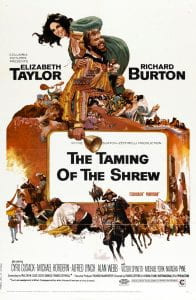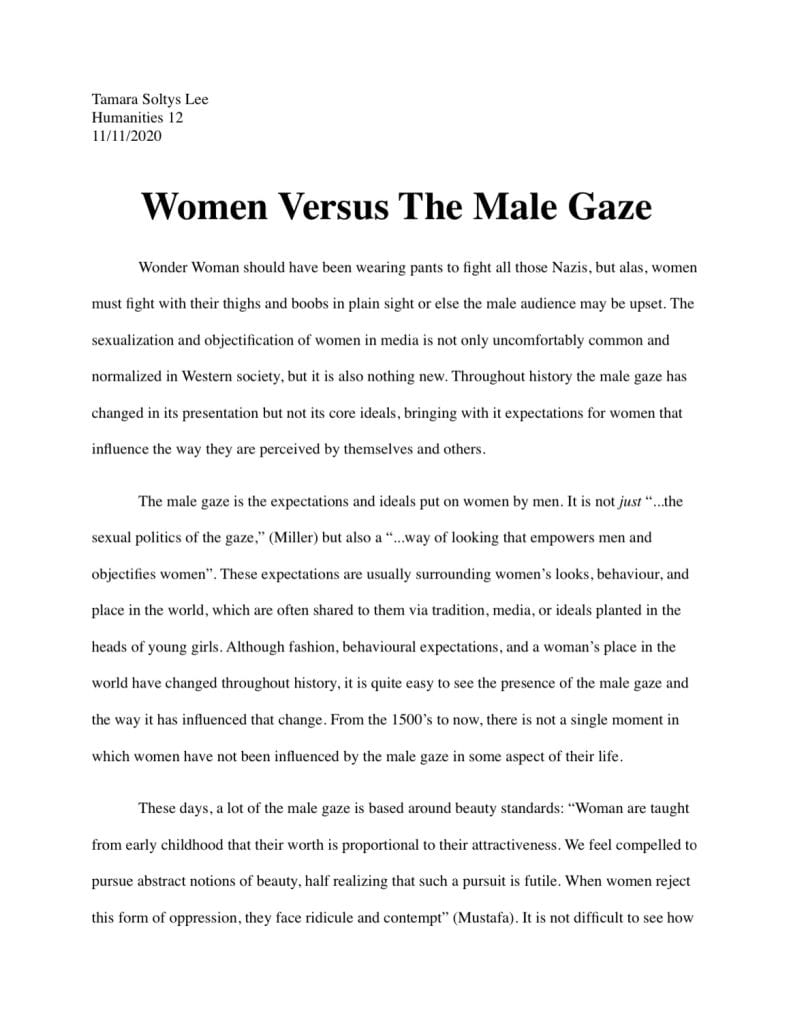The Unshakeable History of Feminists, Shrews, and Shakespeare Plays
Shakespeare was not a feminist.
Is that a bold and presumptuous statement to make? Absolutely. Do I believe that due to the time period he lived in and its era-accurate treatment of women that it is a true statement? Yes. I do.
For the past five weeks (although it feels like a year… but also two minutes simultaneously) we have been studying the history of feminism and Shakespeare’s The Taming of the Shrew. It is one of Shakespeare’s earlier plays, and it fits surprisingly well with the study of women’s rights throughout history. Who knew marriage was such a big deal?
There were three main courses of study for this project:
Number One: CommonLit readings & Essays
Number Two: Women’s History & The History of Feminism
Number Three: Shakespeare’s The Taming of the Shrew
CommonLit Readings & Essays
The main goal for this project was to end up with a well written, well rounded, well sourced, non-traditional essay. To help grow our literacy skills, we started by doing some vocabulary practices, some readings, and reading some exemplar essays. I must confess, most of the books I read don’t exactly exercise my brain, so these were helpful for me.
At the same time, these readings were also expanding our knowledge of women’s rights throughout history, as both the readings and essays were examples of what women experienced as they lived their lives in different eras.
 From Advice to the Newly Married Lady to Excerpt From a Room of One’s Own, these CommonLit readings exposed me to new writing formatting that I wasn’t very used to, and allowed me to gain good historical knowledge at the same time.
From Advice to the Newly Married Lady to Excerpt From a Room of One’s Own, these CommonLit readings exposed me to new writing formatting that I wasn’t very used to, and allowed me to gain good historical knowledge at the same time.
Essays such as My Body is My Own Business by Naheed Mustafa, Cosmo Girls by Moira Farr, and How Wise is it to Separate Our Emotions From the Rest of Our Being? by Bronwen Wallace allowed for me to see what a non-traditional essay could look like and read as, as well as gave amazing examples for the treatment of women in Canada through a more recent historical lens.
Women’s History & The History of Feminism
From the suffragettes to the #MeToo movement, women have been fighting for their rights as human beings to be recognized for centuries. Yes, as shocking as it may be, women are humans too. We’ve got brains and everything.
As we began descending further into our project timeline, we began moving through the history as feminism as well. To gain a deeper understanding of the history of women, we did readings such as the ones mentioned above, and to gain a deeper understanding of the history of feminism we did extensive research for detailed presentations that we shared with the class.
There have been three waves of feminism as of present day:
To dive deeper into the history and information that make up the three waves of feminism, we were split into small groups and assigned a decade, 1940s-current, to research and present on.
My group, which consisted of Giorgia, Marshall, Jordyn, and myself, researched the 1980s. We researched everything from fashion to education to marriage and women’s thinking. If it happened to women in the ‘80s, we did our best to find it. Something that really intrigued me and made me most interested in researching the ‘80s was the influences of media. I personally am a huge sucker for learning about women in media and how media affects women, and the 1980s was really when all of that started to become more and more relevant (and by media, in this case, I am referring mostly to pop-culture media such as television and comic books).
fashion to education to marriage and women’s thinking. If it happened to women in the ‘80s, we did our best to find it. Something that really intrigued me and made me most interested in researching the ‘80s was the influences of media. I personally am a huge sucker for learning about women in media and how media affects women, and the 1980s was really when all of that started to become more and more relevant (and by media, in this case, I am referring mostly to pop-culture media such as television and comic books).
I get into it more in my final essay…
Shakespeare’s The Taming of the Shrew
The Taming of the Shrew (ToTS) is one of Shakespeare’s earlier works. It is quite the play to read. I definitely wouldn’t say that the message behind ToTS has aged too well, but I’ve seen movies from more recent times that have aged worse, so I can’t complain too much. The story of a man taming a wild woman is not new. It wasn’t new to Shakespeare and it certainly isn’t new now, but it has been used throughout history as a story that never seems to die. One of my all time favourite feel-good movies 10 Things I Hate About You is quite literally a modern (1999) version of ToTS, and it makes for a fun comparison to look at for the storytelling and what society perceives as a “shrew” as times have changed.
the play to read. I definitely wouldn’t say that the message behind ToTS has aged too well, but I’ve seen movies from more recent times that have aged worse, so I can’t complain too much. The story of a man taming a wild woman is not new. It wasn’t new to Shakespeare and it certainly isn’t new now, but it has been used throughout history as a story that never seems to die. One of my all time favourite feel-good movies 10 Things I Hate About You is quite literally a modern (1999) version of ToTS, and it makes for a fun comparison to look at for the storytelling and what society perceives as a “shrew” as times have changed.
ToTS really is the perfect example of a story that hasn’t died. It follows the journey of a man named Petruchio as he works harshly and cruelly to tame a shrew-ish lady named Katherina (Kate) and make her his perfect wife. The story ends, unfortunately, with Kate being tamed and becoming a perfect wife. Though that  ending has been changed in re-tellings of the story as years have passed to fit the times.
ending has been changed in re-tellings of the story as years have passed to fit the times.
ToTS is also a rather good example of the Male Gaze. It was written by an English man (white, presumably cis-gendered, man) in Elizabethan times, which means it was written from the perspective of a man, and reflected what a man thought women thought they were worth. The Taming of the Shrew makes for an excellent text to reference when talking about the male gaze throughout history and how it has influenced the way women perceive themselves and the way men perceive women.
Which is coincidentally what I wrote my essay on.
The Essay
This essay was like nothing I’ve ever written before.
Not only was I yet to have written an essay that didn’t follow the guidelines of a normal essay (introduction, 3 paragraphs, and a conclusion), but I also don’t think I’ve ever made so many revisions to a piece of writing in my life. 
The essay itself was supposed look at continuity and change for women throughout history using examples from the texts we studied during our project (the essays and readings, our presentations, and The Taming of the Shrew).
I must admit I struggle with essays, and this one was no different. There’s so much information to share, so many words, so much to say and so many ways to say it. It’s often overwhelming for me. But I wrote this essay, and I revised it over and over until it was practically perfect. One 3am work night, seven revisions, and a surprising lack of tears later, this was the piece I ended up with. I’m rather proud of it.

I learned a lot from this project. That patience is key, that writing is hard, that citations are a pain in the butt but are also so necessary for a good historical piece, and most importantly: how to write an essay that I can be proud of.
Of course there are some things I would change, I wish I had written a TWIL post every week to properly example all the learning I did (see existing ones here: Sluts!,Wife Material), I wish I had taken my original notes of ToTS properly so I could have avoided that 3am work night, I wish I was able to grasp some of the concepts of our project better….
But in the end, the work that I did do I am proud of. I worked hard and I worked well and I wouldn’t trade the learning the past 5 weeks has given me (both academically and life-skills wise) for anything… other than maybe a long and restful nap.
